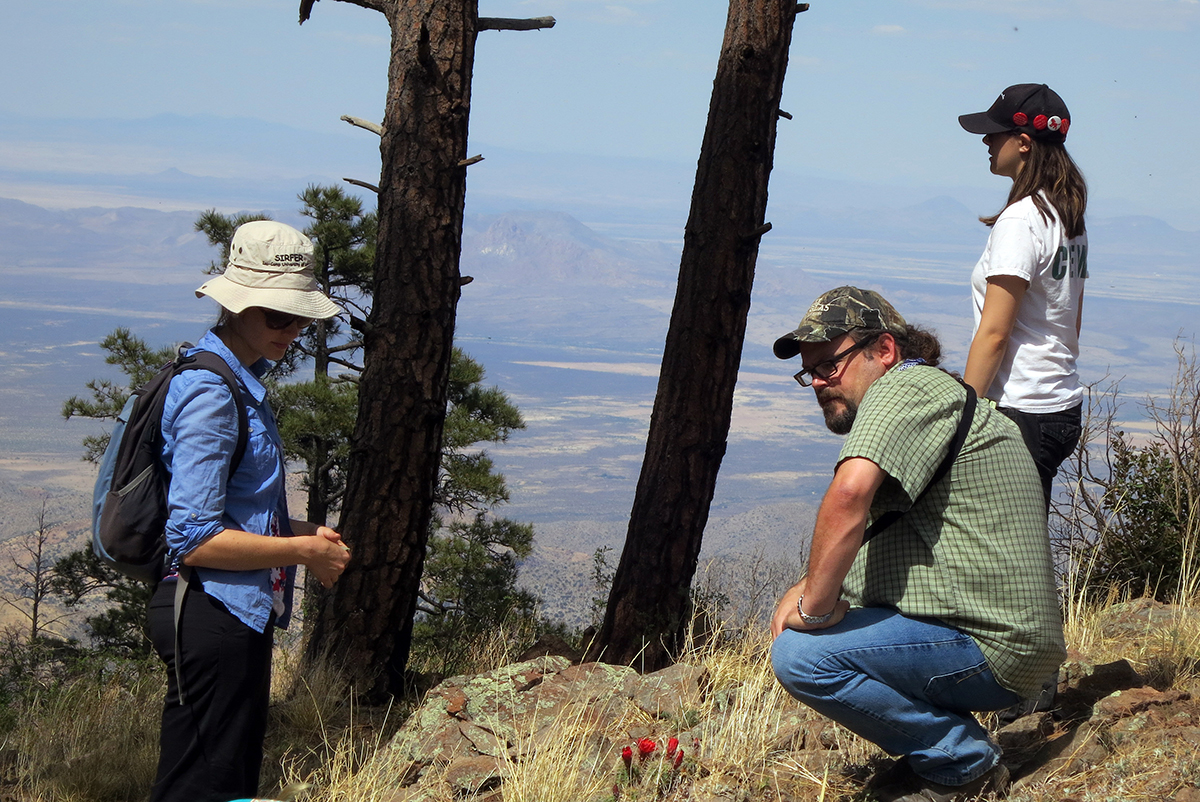Menschel fellow Jed Sparks aims to energize field study
By Krishna Ramanujan

Ecology and evolutionary biology professor Jed Sparks’ passion for teaching comes from seeing his students engage with the material. And there is no better way to engage them than getting them out in the field, he says.
As Cornell’s 2016-17 Menschel Distinguished Teaching Fellow, Sparks, who directs the Cornell Isotope Laboratory (COIL), will develop a handbook for field teaching this year. The fellowship, funded by the Office of the Vice Provost for Undergraduate Education in connection with the Center for Teaching Excellence (CTE), engages a distinguished faculty member in promoting the teaching mission of the university and carries a $10,000 stipend.
“As our Menschel fellow, Professor Sparks will help the center provide programming that is valued by our faculty and helps to enhance student learning at Cornell,” said Theresa Pettit, director of CTE. “He is a very creative teacher and he is committed to providing students with meaningful learning experiences.”
“The evidence is really clear that 100 percent engagement is what drives retention, and so I strive to do that more at every level,” said Sparks, a former director of the Office of Undergraduate Biology. “I love to teach in the field because students easily become engaged.”
Compared with 50 years ago, there are now up to 50 percent fewer field courses in higher education, Sparks said. High costs, risk management issues and Institutional Animal Care and Use Committee (IACUC) regulations for how animals are treated in the field, for example, have created challenges for bringing students into the field. As a result, young faculty members have procedures and regulations to learn that deter them from teaching field research courses, Sparks said.
“Twenty-five years ago, I could take students to the Southwest, and we could handle snakes,” Sparks said. “Today, you can still do that, but there has to be an IACUC protocol through Cornell, so there are things one needs to know about the system of your university to be effective.”
His proposed handbook, “Reinvigorating field and lab teaching at Cornell,” will draw from faculty and administrators’ expertise and provide a one-stop resource for faculty to negotiate risk management, finances, course timing and working collaboratively with administrative bodies.
Sparks “believes in the importance of experiential field and lab opportunities for students, and he will use this fellowship to create resources that facilitate, train and empower Cornell faculty to offer these courses,” said Julia Thom-Levy, Provost's Fellow for Pedagogical Innovation.
Sparks has recently taught courses in Ecology and the Marine Environment (BioSM 1610), Advanced Ecology (BioEE 3610), Plant Physiological Ecology (BioEE 4660), Tropical Field Ecology (BioEE 6601) and the Graduate Field Course in Ecology (BioEE 6602).
Sparks’ research uses an analysis called stable isotope ecology to study plant and animal physiology and ecosystem and atmospheric processes. The technology measures isotopes – the molecular weight of elements such as carbon – that convey signatures from their geographic sources.
“For example, if a person was just on vacation in China, and if we sampled his or her hair, the hair that person grew in China would look isotopically like China,” Sparks said. In this way, COIL has worked with archaeologists to understand the climate in which ancient wood grew, to study bird and whale migration patterns, and to measure potential methane release from hydraulic fracturing in Pennsylvania, among many other applications.
Media Contact
Get Cornell news delivered right to your inbox.
Subscribe